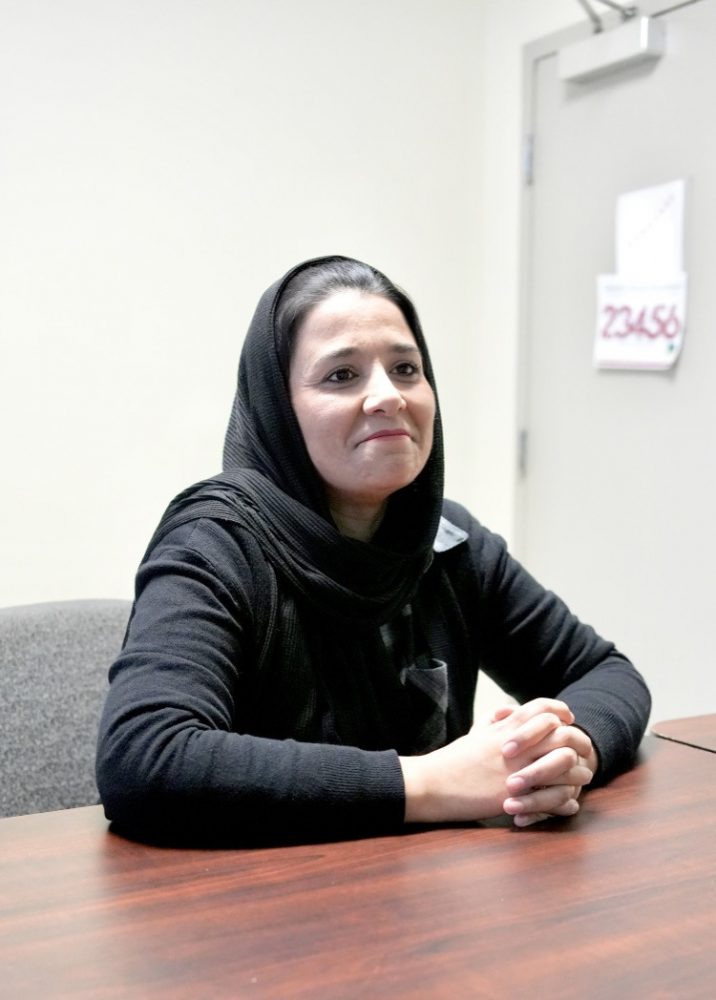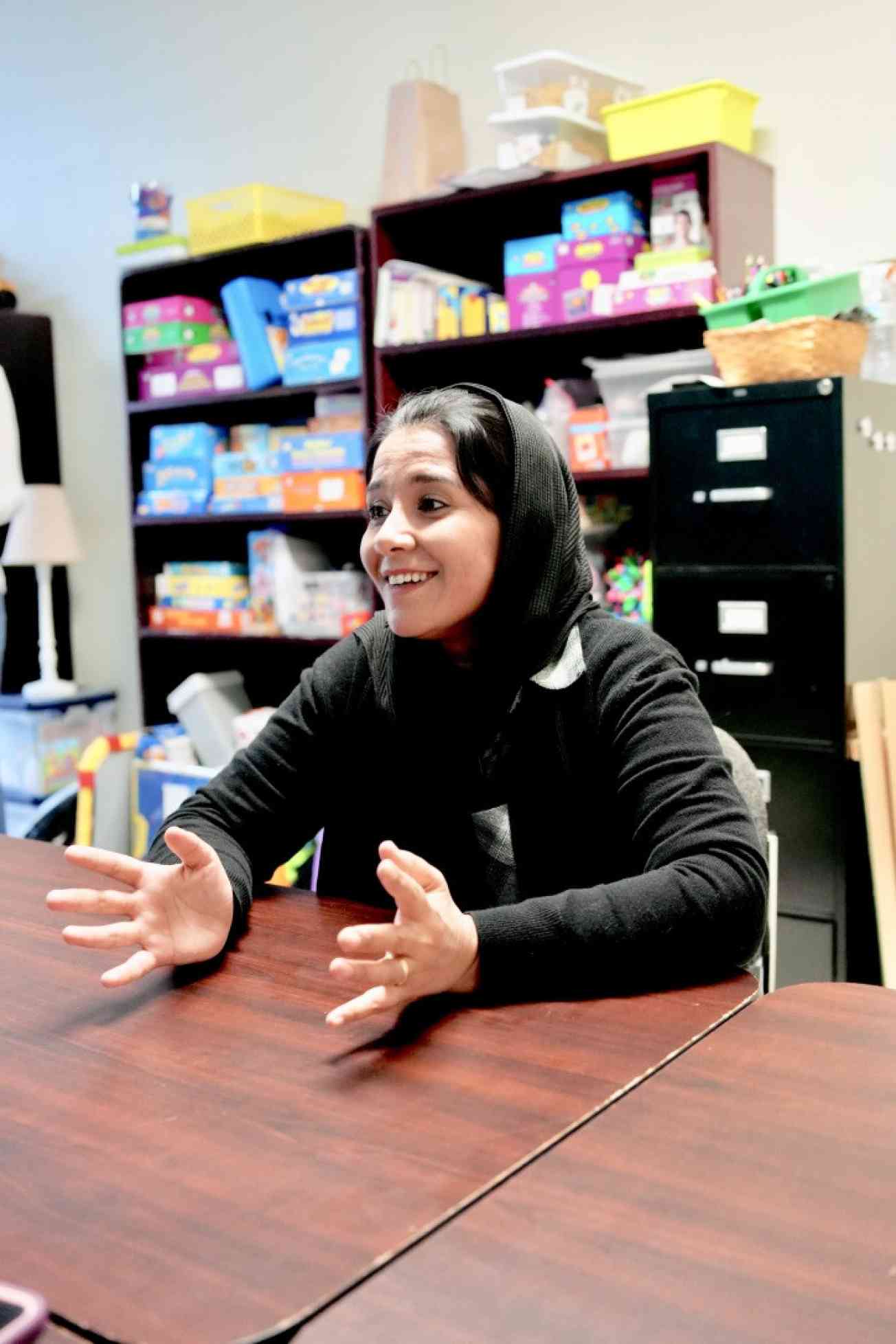My Father Knew the Value of Education, Even Under the Taliban

My name is Zarmina Lodin, and I came to the United States from Afghanistan two-and-a-half years ago, right before the Taliban took over Afghanistan in 2021.
My education started when I lived in Mazar-i-Sharif and attended primary school until fourth grade. And then the regime changed. The Taliban took over at that time, and there were some inside problems in our country, so girls were not allowed to get an education.
But my family supported me and tried to prepare me at home; my father and uncle brought me books so I would not forget the things I had learned. Later we moved to Kandahar. That was the last year of the Taliban, and they announced that girls could enroll in nursing school in ninth grade. I had not been in school–just my preparations at home–so I started preparing again and had to work hard to pass the Kankor exam, because this was the only chance for girls. Fortunately, I passed the exam, and I began nursing school for three years in 10th, 11th, and 12th grades. I graduated as a professional in 12th grade, and then my father passed away.
As the elder daughter, I took responsibility for my family, and I took a job as a nurse in Kandahar, which was very dangerous. The hospital I was working at had been targeted several times because of the NGO (non governmental organization) I was working with. People in the Taliban often followed me.
My family did not like me working there, so a friend helped me find an admin job in an office that provided law services. I worked there for almost two-and-a-half years and then started getting threats again from the Taliban.
Even my neighbors and some of my cousins were against me.
My family was concerned about me and asked me to resign. When I talked to the office, they didn’t want me to resign–they said they could transfer me to another province. So I went to Kabul.
When I was in Kabul, I had the opportunity to start higher education. It took me some time to decide what subject to get my higher education in, but one of my supervisors who was American suggested I do law, so that made the decision easy.
I found a university and went to school there for four years. It was a tough time. I worked full time during the day, and then at night I had to study. But with the support of my supervisor and my family, I did it and got my law degree. And I also got my special immigration visa. It was a hard time, but I got so many good things.

I met my husband in Kabul. He was working as a legal translator with one of the international NGO’s that was funded by the US Government. We were connected in the same office. We were both supposed to get our special immigration visas at the same time, but his came first and he went to the United States; mine was supposed to come just a few days later, but then the Covid pandemic happened, and I had to wait two more years to get mine. Once mine finally came, I prepared myself in just 10 days and joined my husband in Kansas City, MO.
My first job in the United States was as a caseworker with Della Lamb, and I have been here now for two-and-a-half years. I really enjoy it. I am serving clients not only from Afghanistan, but also from different countries, different nations, and I never get tired of my job. I love my job. My higher education has helped me a lot in my work experience. I’m thankful for my degree and all of my experiences.
My father and his side of the family–they were all educated people; they know the value of education. It’s only because of my family that I am what I am today. Without their support, I wouldn’t have been able to do anything.
All those relatives and people who were against me being educated, they have changed their minds. Now they are following my example and letting their kids be educated.
Even though I’m far away from my hometown, I still hear about them using my example with their kids. “Look, everyone can be like Zarmina. She fought with society, she fought with relatives, and she fought with everything, but she has achieved so much.”
It’s not over. I have more opportunities and more education here to grow. And I can be an example to my clients and give them the support they need. I really enjoy being here. These are my good days.
Our team members obtain informed consent from each individual before an interview takes place. Individuals dictate where their stories may be shared and what personal information they wish to keep private. In situations where the individual is at risk and/or wishes to remain anonymous, alias names are used and other identifying information is removed from interviews immediately after they are received by TSOS. We have also committed not to use refugee images or stories for fundraising purposes without explicit permission. Our top priority is to protect and honor the wishes of our interview subjects.